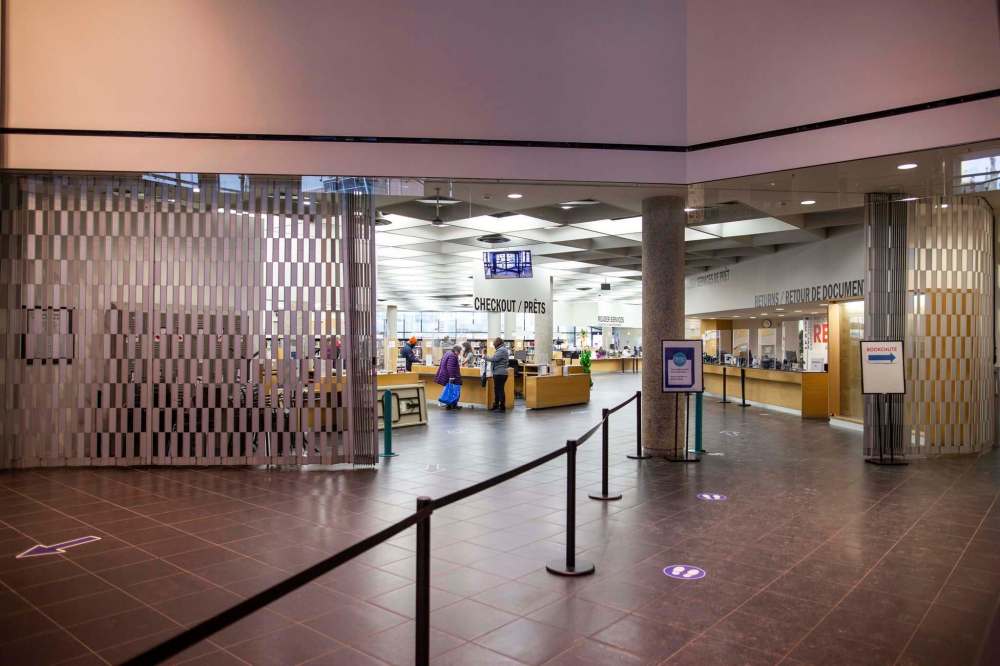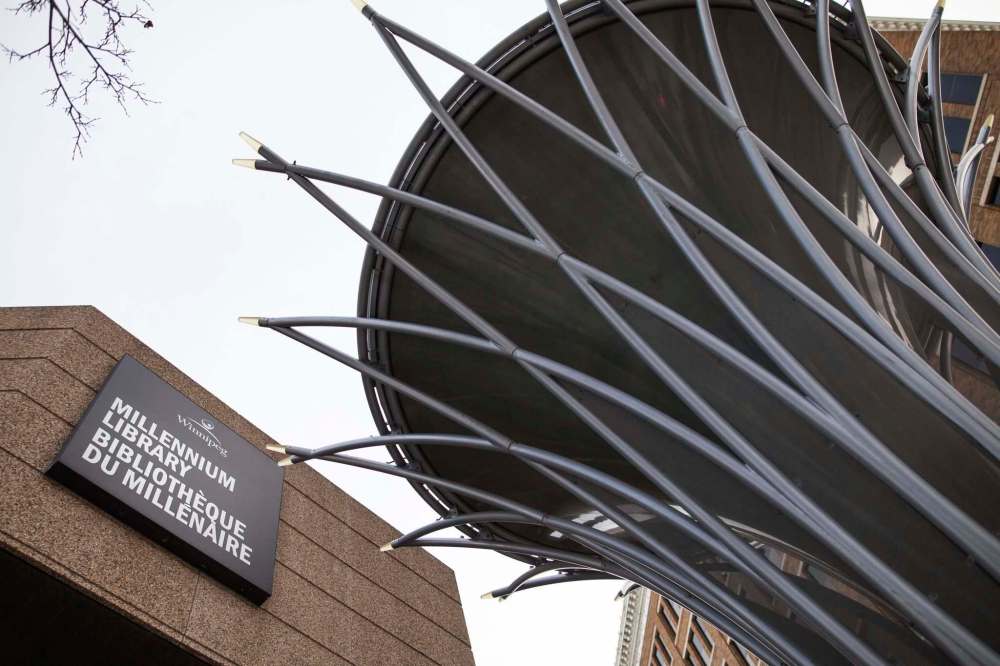Library, community work on new security approach
Advertisement
Read this article for free:
or
Already have an account? Log in here »
To continue reading, please subscribe:
Monthly Digital Subscription
$0 for the first 4 weeks*
- Enjoy unlimited reading on winnipegfreepress.com
- Read the E-Edition, our digital replica newspaper
- Access News Break, our award-winning app
- Play interactive puzzles
*No charge for 4 weeks then price increases to the regular rate of $19.00 plus GST every four weeks. Offer available to new and qualified returning subscribers only. Cancel any time.
Monthly Digital Subscription
$4.75/week*
- Enjoy unlimited reading on winnipegfreepress.com
- Read the E-Edition, our digital replica newspaper
- Access News Break, our award-winning app
- Play interactive puzzles
*Billed as $19 plus GST every four weeks. Cancel any time.
To continue reading, please subscribe:
Add Free Press access to your Brandon Sun subscription for only an additional
$1 for the first 4 weeks*
*Your next subscription payment will increase by $1.00 and you will be charged $16.99 plus GST for four weeks. After four weeks, your payment will increase to $23.99 plus GST every four weeks.
Read unlimited articles for free today:
or
Already have an account? Log in here »
Hey there, time traveller!
This article was published 20/11/2021 (1477 days ago), so information in it may no longer be current.
More than a year after airport-style security was removed from Winnipeg’s main library, the end of invasive screening is being considered a win for grassroots community groups who kept pushing for the library to be a welcoming place for everyone.
The metal detector and bag checks were scrapped in the summer of 2020 at the downtown Millennium Library, and the City of Winnipeg has promised those security screenings are a thing of the past. Now, the library is moving forward with other security measures that won’t include a screening process but have included several community groups that advocate for Winnipeggers in need.
Organizations such as Sunshine House, Fearless R2W, SEED Winnipeg, Millennium For All, Persons Community Solutions and the Downtown Community Safety Partnership were involved in developing the specifications for a different kind of security at the library, one focused on de-escalation and anti-racism training.

Joe Curnow, an organizer of the Millennium for All group, says the groups were trying to emphasize the need for a different approach to security — one that prioritizes harm reduction over intimidation.
“We have been working alongside a lot of other community groups with library management to build a different kind of approach to safety.”
A municipal request for proposals closed earlier this month under the city’s public-tender process. The city is seeking to award a $550,000 contract to hire unarmed security guards starting in January. It’s a standard security contract, a city spokesperson stated.
“Dialogue with community organizations regarding library safety measures for patrons and staff is ongoing; however, a return to security screening measures at Millennium Library is not being considered,” Joelle Schmidt wrote in an emailed statement.
The library introduced airport-style screening in 2019, citing safety concerns about escalating incidents involving intoxication, substance use and violent or threatening behaviour, as well as the city’s responsibility to provide a safe work environment for staff.
Over the course of a year, a groundswell of advocates — including prominent Manitoba artists, musicians and authors — spoke out against the screenings and held rallies in protest, saying the screenings only served to keep out vulnerable people and unfairly penalized people with addictions and past trauma.
Curnow said Millennium For All harnessed the work of several academics and other community organizers who presented data and issued reports to prove the airport-style screening was wrong. The library eventually admitted the policy was a mistake and stopped the screenings altogether following library shutdowns in the second wave of the COVID-19 pandemic.
“I think it was actually a huge win for community. One of the biggest community-organizing wins in Winnipeg in quite some time. And so, I think that it shows us some things about the effectiveness of community advocacy, but also, I would say it’s a longer fight. Now I think we’re thinking very seriously about what it would mean to appropriately fund and staff libraries, and I think that means defunding the police, because so much of the library funding is getting sucked into an out-of-control police budget.”
A community resource space is still in the works for Millennium Library, and in the meantime, another alternative to traditional security guards is taking shape at two other city libraries. Three individuals are receiving 170 hours of security training to work as full-time, paid community safety hosts at the St. John’s and St. Boniface library branches. The program includes what’s required as part of Manitoba’s standard 40-hour provincial security training and goes well beyond.
The pilot project started with training in October, and the three individuals are set to begin working in the libraries next month, until the end of January. Fearless R2W launched the project with community funding and is delivering it with Persons Community Solutions security services. The program is eventually intended to be for Indigenous young adults who have aged out of the child-welfare system.

“It came about because youth aging out of care found that there were often security guards present in environments where they had to receive services as young people, and there were times where the security guards made those young people feel unsafe,” said Michael Redhead Champagne of Fearless R2W.
The intention, he said, is that people who’ve had experience in the child-welfare system will be better equipped to offer emotional support and de-escalate confrontations with others who’ve shared similar experiences.
“My hope is that not only will this provide supportive employment opportunities for Indigenous youth aging out of care, but it would also reduce the amount of conflict that the broader community has with security guards.”
katie.may@freepress.mb.ca
Twitter: @thatkatiemay

Katie May is a general-assignment reporter for the Free Press.
Our newsroom depends on a growing audience of readers to power our journalism. If you are not a paid reader, please consider becoming a subscriber.
Our newsroom depends on its audience of readers to power our journalism. Thank you for your support.
History
Updated on Monday, November 22, 2021 4:46 PM CST: Corrects description of pilot project participants.



